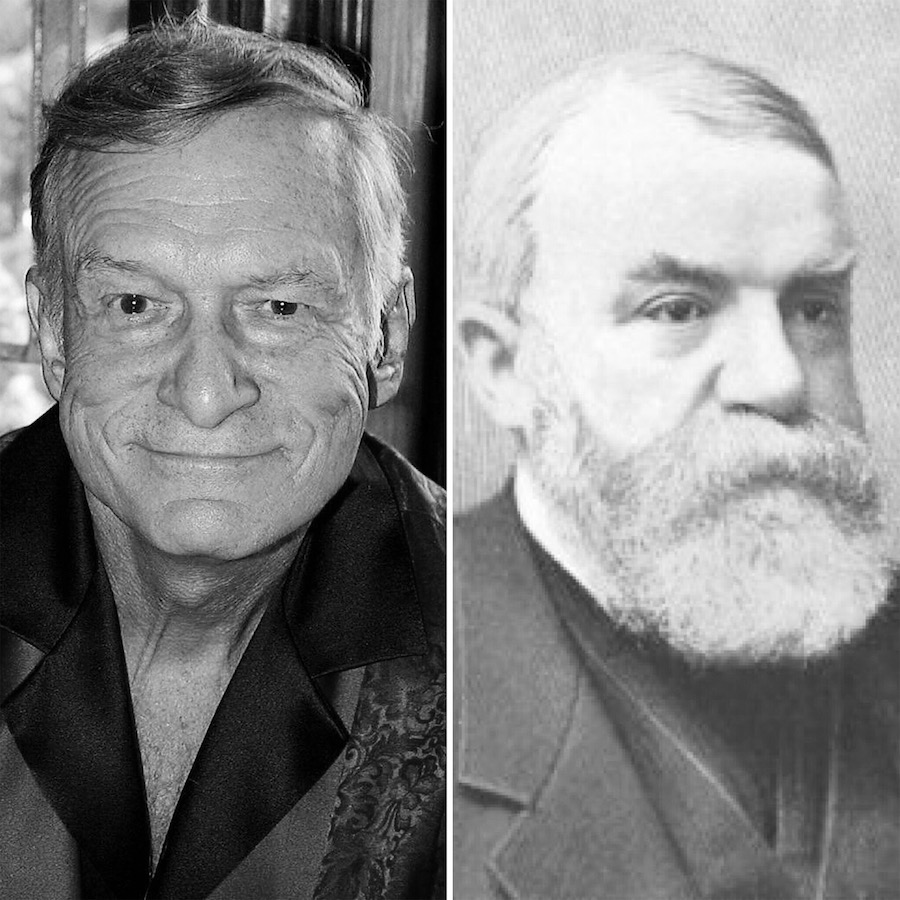
Hugh Hefner and D.L. Moody—these are two names (and pictures) that you don’t typically see side by side.
In a Chicago Sun-Times article on the most influential Illinoisans, Hefner and Moody were listed one after the other. Here was their rationale:
Hugh M. Hefner (1926-2017), publisher and bon vivant. Steinmetz High School graduate Hugh Hefner was a product of the Northwest Side Bungalow Belt. His imagination and drive forged a publishing empire and changed the social and sexual mores of American society in profound ways during the 1950s and 1960s. Whatever else one may think of him, he was one of the most influential people of the mid-to-late-20th Century.
Dwight Lyman Moody (1837-1899), American Christian evangelist, author, publisher and founder of the Moody Bible Institute. Born in Massachusetts, but influential in Minnesota and Illinois. Moody converted to Evangelical Christianity as a 17-year-old in April 1855. During the Civil War, President Lincoln visited and spoke at a Sunday School meeting he sponsored on November 25, 1860. Moody preached on many battlefronts including Shiloh, Stones River and Richmond. After the Civil war he moved to Chicago begin a congregation in the Illinois Street Church. Wiped out by the Chicago Fire, Moody began anew and over the next 20 years he became internationally known, holding many religious revivals in Great Britain and Sweden. Moody led the Chicago Bible Institute, and after his death the Chicago Avenue Church was renamed the Moody Church and the Chicago Bible Church became the Moody Bible Institute we know today.
If influence is measured by your ability to affect someone else—their opinions, character, development, actions, and thoughts—then yes, both Moody and Hefner are influential.
And if influence is what we truly want, then we’re living in the best time of history, since everyone has a voice—all you need is a smartphone or a computer to amplify it. Just take a look at your social media feed and you’ll know exactly what I’m talking about.
However, what we desperately need to understand is that influence is not neutral.
[Read more…] about The Influence of Hugh Hefner and D.L. Moody
